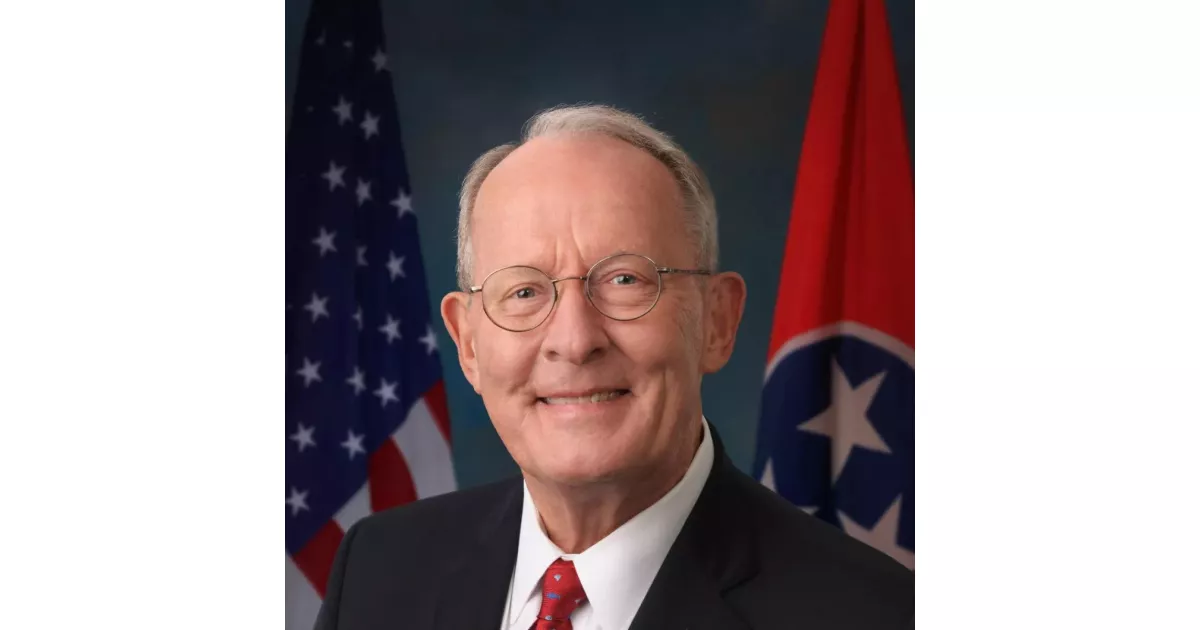Lamar Alexander is an American politician and attorney notable for his extensive career in public service. He served as a U.S. Senator for Tennessee from 2003 to 2021, and previously as the 45th Governor of Tennessee from 1979 to 1987. Furthermore, he held the position of the 5th United States Secretary of Education from 1991 to 1993, contributing to the implementation of Education 2000. A member of the Republican Party, Alexander's career reflects a long-standing involvement in both state and federal governance, with a particular focus on education.
July 3, 1940: Lamar Alexander Born
On July 3, 1940, Andrew Lamar Alexander Jr. was born. He would later become a U.S. Senator and the 45th governor of Tennessee.
1962: Alexander Graduates from Vanderbilt
In 1962, Alexander graduated Phi Beta Kappa from Vanderbilt University with a degree in Latin American studies.
1965: Alexander Clerks for Judge Wisdom
From 1965 to 1966, Alexander clerked for Judge John Minor Wisdom in New Orleans.
1965: Alexander Earns Law Degree
In 1965, Alexander obtained his Juris Doctor from the New York University School of Law.
1966: Alexander ends clerking
From 1965 to 1966, Alexander clerked for Judge John Minor Wisdom in New Orleans.
1967: Alexander Becomes Legislative Assistant
In 1967, Alexander worked as a Legislative Assistant for Senator Howard Baker and met his future wife.
1969: Alexander Works for Nixon's Assistant
In 1969, Alexander worked for Bryce Harlow, President Richard Nixon's executive assistant.
1970: Alexander Manages Dunn's Campaign
In 1970, Alexander served as campaign manager for Winfield Dunn's successful gubernatorial bid in Tennessee.
1972: Blanton's Senate Candidacy
In 1972, Ray Blanton, who would later defeat Alexander in the 1974 gubernatorial race, was an unsuccessful Senate candidate.
1974: Alexander Named Face of the Future
After the 1974 campaign, Alexander returned to the practice of law. In 1974, TIME Magazine named Alexander one of the 200 Faces of the Future.
1974: Alexander Loses Gubernatorial Election
In 1974, Alexander lost the general election for governor to Ray Blanton after Nixon's resignation.
1974: Failed Gubernatorial Run
In 1974, Alexander ran for Governor of Tennessee but was defeated by Democrat Ray Blanton.
1977: Alexander Back in Baker's Office
In 1977, Alexander worked in Baker's Washington office following Baker's election as Senate Minority Leader.
November 1978: Alexander Defeats Butcher
In November 1978, Alexander defeated Jake Butcher in the election for Tennessee governor.
1978: Controversy over Liquor License
During the 1978 Tennessee gubernatorial campaign, news reports revealed that Alexander once transferred a church's non-profit charter to his Ruby Tuesday restaurant chain to sell liquor in Gatlinburg, TN.
1978: Alexander Walks Across Tennessee
In 1978, Alexander ran for governor again, walking from Mountain City to Memphis, making a name for himself.
1978: Alexander Elected Governor
In 1978, Alexander was elected governor of Tennessee, defeating Jake Butcher.
1978: Constitutional Amendment
In early 1978 the Tennessee State Constitution had been amended to allow a governor to succeed himself.
January 17, 1979: Alexander Sworn in Early
On January 17, 1979, Alexander was sworn in as governor early to prevent outgoing Governor Blanton from issuing more pardons.
February 1979: Alexander Creates Ombudsman Office
In February 1979, Alexander created an Office of Ombudsman to cut government red tape.
1979: Alexander Becomes Governor
In 1979, Lamar Alexander became the 45th governor of Tennessee, a position he held until 1987.
1980: Nissan Plant in Smyrna
In 1980, the construction of a $660 million Nissan assembly plant in Smyrna was the largest investment in Tennessee's history.
1982: Alexander Re-elected Governor
In 1982, Alexander was re-elected as governor of Tennessee, defeating Randy Tyree.
1983: Alexander Implements Better Schools Program
In 1983, Alexander implemented his "Better Schools" program, which standardized basic skills for all students, and increased math, science and computer education.
1984: Alexander Opts out of Senate contest
In 1984, Alexander opted out of the US Senate contest.
1985: Alexander Chair of NGA
From 1985 to 1986, Alexander served as chairman of the National Governors Association.
1986: Alexander Chair of NGA
From 1985 to 1986, Alexander served as chairman of the National Governors Association.
1986: Alexander Proposed Better Roads Program
In 1986, Alexander proposed the "Better Roads Program" to fund highway projects.
January 17, 1987: Alexander Steps Down as Governor
On January 17, 1987, Alexander stepped down from the governorship after being constitutionally ineligible for a third term.
1987: TRACS Advisory Panel
In 1987 and 1991, advisory panel recommended against TRACS, but Alexander approved it.
1987: Alexander Co-Founded Child Care Company
In 1987, Alexander helped found Corporate Child Care Management, Inc. which increased in value to $800,000. Also in 1987, he invested in Whittle Communications.
1987: Alexander Ends First Governorship
In 1987, Lamar Alexander's tenure as the 45th governor of Tennessee came to an end, after serving since 1979.
1988: Alexander Becomes UT President
In 1988, Alexander began his tenure as the president of the University of Tennessee.
1990: Saturn Plant Begins Operations
In 1990, the General Motors Saturn Manufacturing Facility began operations in Spring Hill.
1991: Alexander Becomes Education Secretary
From 1991 to 1993, Alexander served as the United States Secretary of Education.
1991: Alexander Leaves UT Presidency
In 1991, Alexander left his position as president of the University of Tennessee to become Secretary of Education.
1991: House Sold to Whittle
In 1991, Alexander's house, which he had recently purchased for $570,000, was sold to Whittle for $977,500.
1991: Alexander Becomes Secretary of Education
In 1991, Lamar Alexander became the 5th United States Secretary of Education, serving until 1993.
1993: Alexander Ends time as Secretary
From 1991 to 1993, Alexander served as the United States Secretary of Education.
1993: Alexander Ends time as Secretary of Education
In 1993, Lamar Alexander concluded his service as the 5th United States Secretary of Education, after serving since 1991.
1993: Book Published
In 1993, Steve Levicoff published a book-length critical discussion of TRACS and Alexander's decision in When The TRACS Stop Short.
1998: Bryant in Clinton Impeachment
In 1998, Ed Bryant, who opposed Alexander in 2002, was a House manager during Bill Clinton's impeachment.
March 9, 1999: Alexander Announces Candidacy
On March 9, 1999, Alexander announced his candidacy for president, marking the beginning of a six-month journey.
August 16, 1999: Alexander Withdraws Candidacy
On August 16, 1999, Alexander withdrew from the presidential race after a poor showing in the Ames Straw Poll.
2000: Second Presidential Run
In 2000, Alexander made another unsuccessful run for President.
2000: Involvement in Education 2000
In 2000, Lamar Alexander helped with the implementation of Education 2000 as United States Secretary of Education from 1991 to 1993.
2002: Senate Run
In 2002, Alexander ran for the open Senate seat, facing opposition from conservatives.
2002: Alexander Elected to Senate
In 2002, Alexander was elected to the U.S. Senate, succeeding Fred Thompson.
2003: Alexander Becomes Senator
In 2003, Lamar Alexander began his service as a United States Senator from Tennessee, a position he would hold until 2021.
2005: BFAM Stock Ownership
In his 2005 U.S. Senate financial disclosure report, he listed personal ownership of BFAM (Bright Horizons Family Solutions) stock valued between $1 million and $5 million.
April 2007: Announces re-election bid for Senate in 2008
In April 2007, Lamar Alexander formally announced his intention to seek re-election to the Senate in 2008, setting the stage for his campaign.
April 2007: Plays piano on Patti Page's re-recording of "Tennessee Waltz"
In April 2007, Lamar Alexander played piano on singer Patti Page's re-recording of her 1950 hit "Tennessee Waltz," at the invitation of record executive Mike Curb. He and Page performed the song live at an April 4 fundraiser for his senatorial re-election campaign in Nashville.
2007: Alexander Became Chairman
From 2007 to 2012, Alexander served as Chairman of the Senate Republican Conference.
2007: Advocates for Iraq Study Group recommendations
In 2007, Lamar Alexander touted the implementation of the Iraq Study Group recommendations, suggesting that President Bush could be viewed as a Truman-esque figure if he followed through with the Group's suggestions.
2007: Elected as Conference Chair
In 2007, after Lott's resignation, Alexander defeated Sen. Richard Burr to become Conference Chair.
2012: Alexander ended time as Chairman
From 2007 to 2012, Alexander served as Chairman of the Senate Republican Conference.
2015: Alexander Became Chairman
From 2015 to 2021, Alexander served as chairman of the Senate Health, Education, Labor and Pensions Committee.
2017: IMPROVE Act Signed
In 2017, Governor Bill Haslam signed the "IMPROVE Act," a similar initiative based on Alexander's Better Roads Program.
August 2018: Decides not to seek re-election in 2020
In August 2018, Lamar Alexander made the decision not to seek another term in 2020.
October 6, 2018: Votes to confirm Brett Kavanaugh to the Supreme Court
On October 6, 2018, Lamar Alexander was among the 50 senators who voted to confirm Brett Kavanaugh to the Supreme Court.
November 2018: Requests USMCA be submitted to Congress
In November 2018, Lamar Alexander joined eleven other Republican senators in signing a letter to President Trump, requesting that the United States-Mexico-Canada Agreement (USMCA) be submitted to Congress by the end of the month for a vote before year's end.
December 17, 2018: Alexander Announces Retirement
On December 17, 2018, Alexander announced that he would not seek re-election to the Senate in 2020.
December 17, 2018: Announces he will not seek re-election in 2020
On December 17, 2018, Lamar Alexander publicly announced that he would not seek re-election in 2020, after having made the decision as early as August 2018.
September 2020: Supports immediate vote on Trump's Supreme Court nominee
In September 2020, Lamar Alexander supported an immediate vote on President Trump's nominee to fill the Supreme Court vacancy caused by the death of Justice Ruth Bader Ginsburg, stating it was expected that a Republican Senate would vote on a Republican president's nominee.
2020: Alexander not running for Senate
In 2020, Lamar Alexander did not run for a fourth term in the Senate after announcing on December 17, 2018 that he would not seek re-election.
2021: Alexander Ends Chairman Role
From 2015 to 2021, Alexander served as chairman of the Senate Health, Education, Labor and Pensions Committee.
2021: Son, Drew, passes away
In 2021, Lamar Alexander's son, Drew, passed away.
Mentioned in this timeline

Bill Clinton the nd U S President - served as...

Ruth Bader Ginsburg was an American lawyer and Supreme Court...
Iraq officially the Republic of Iraq is a West Asian...

News encompasses information about current events disseminated through various media...

Brett Kavanaugh is an American lawyer and jurist who currently...
Canada is a North American country the second largest in...
Trending

10 months ago Alex Bowman Scores Pole at Bristol, Suffers Engine Failure During NASCAR Cup

2 months ago Billy Crudup Speaks About Mary-Louise Parker Breakup and Co-Parenting Relationship
Virginia officially the Commonwealth of Virginia is a state located in the Southeastern and Mid-Atlantic regions of the United States...

2 months ago Alycia Parks vs Tamara Korpatsch in Angers: Preview, Prediction, and Betting Tips
11 months ago CME & Google Cloud Pilot Blockchain for Trading & Asset Tokenization Solutions
3 months ago AMD's Data Center Growth Boosts Optimism, Trillion-Dollar Market Cap Predicted, Analyst Cautions.
Popular

Kid Rock born Robert James Ritchie is an American musician...

Melania Trump a Slovenian-American former model has served as First...

XXXTentacion born Jahseh Dwayne Ricardo Onfroy was a controversial yet...

Thomas Douglas Homan is an American law enforcement officer who...
The Winter Olympic Games a major international multi-sport event held...

Instagram is a photo and video-sharing social networking service owned...
